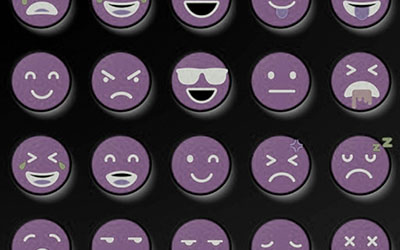
Tone is everything. Even without saying the actual words, people often call each other names with degrading or disrespectful tones. There is a wide palette of negative tones — sarcastic, passive-aggressive, cold and calculating, ridiculing — and so on. But they all will prevent you from reaching a desired outcome. When the neon sign of negative tone is flashing, it shuts down listening and commitment.
Your tone is showing
A passive-aggressive tone used during conflict reduces influence. When someone slows down his speaking, pauses a lot and gets a ridiculing smirk on his face, people notice. Outcomes get delayed when we make people feel small.
When someone pretends to be calmer and switches into so-called “professional mode,” it doesn’t work either. Calmer cannot be faked. You are either calm or you are not. This false calm reminds me of the scariest kind of serial killers — the ones who continue to “talk nice” while they hack you to bits. Try not to be a serial killer.
It is exhausting to fake feelings
When I was a young woman, I was leading a meeting about a controversial topic. One of the attendees kept addressing me in sarcastic and degrading tones. He was clearly angry and kept trying to pretend he wasn’t. I continued to be clear and kind in my communication; finally the attendee lost his cool and called me a “bitch” in front of everyone. He just couldn’t pretend anymore.
The room startled and braced. I laughed. “You know Mel, you may be right, I may be a bitch and we can talk about that at the bar later. The real issue here is not a personality trait of mine — it is whether we want to do something to protect our businesses…”
Everyone in the room burst out in applause.
We were all suffering from the neon sign of disagreement he was pretending not to have, and we were all relieved when his disrespectful tone was defused. Once he got the anger out, we were able to go back to the actual debate.
The point is not to tell you to call people names, the tone of voice is already doing that. People know.
Passive-Aggressive communication does not work
No one likes it when folks are passive-aggressive or placating. Snark prevents the desired outcome and hurts relationship. Reduced listening means reduced outcomes. To change a mind, make a sale or change the world: We must first be heard.
So what do we do when we’re frustrated and we can’t pretend we’re not?
Well, without an example that is a hard one to answer. Here are a couple of tips:
- Frustration is often a sign that an influencer needs to teach something. Teach.
- Empathy. Frustration is often a sign that we want someone to be different than they are. Seeing it from their perspective instead of just ours can shift a dynamic.
- Be direct. Rather than act like ya aren’t mad, call out the feeling. “Hey all, I’m feeling frustrated that we made the same mistake again. Anyone have any ideas, seriously, to fix the future?”
- Be real yet realize making people feel small is irrational when it comes to influence.
Match your tone.
How people feel about themselves around an influencer dictates commitment or compliance. Match your tone to the outcome desired.


